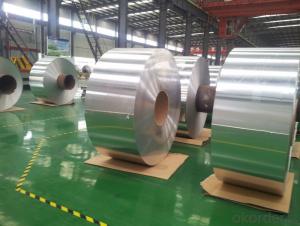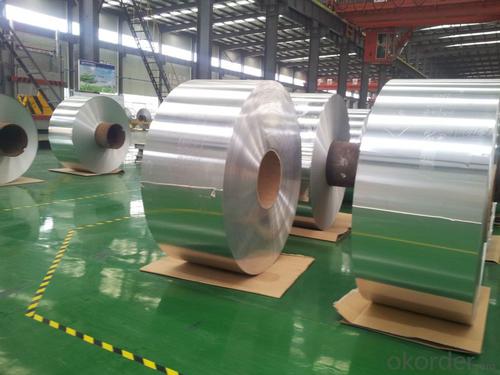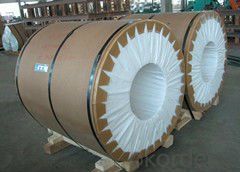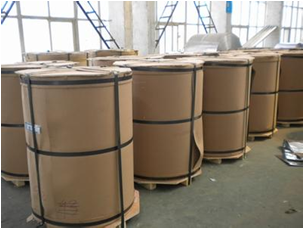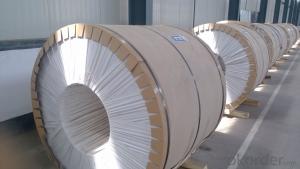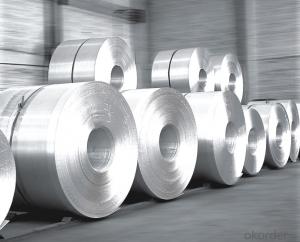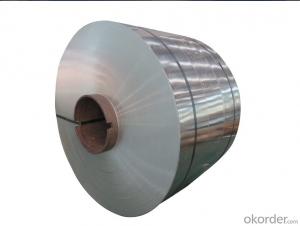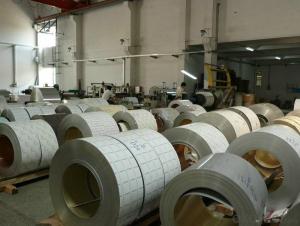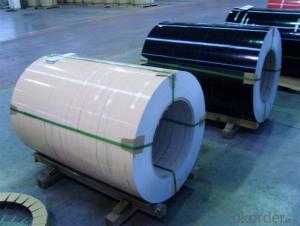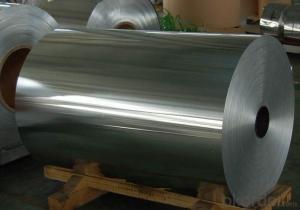026 Aluminum Coil - 6083 T5 Aluminum Alloy Plate/Coil from China
- Loading Port:
- Shanghai
- Payment Terms:
- TT OR LC
- Min Order Qty:
- 5 m.t.
- Supply Capability:
- 90000 m.t./month
OKorder Service Pledge
OKorder Financial Service
You Might Also Like
Specification
Specifications
low price with high quality
free sample
efficiently and professionally delivery
good service
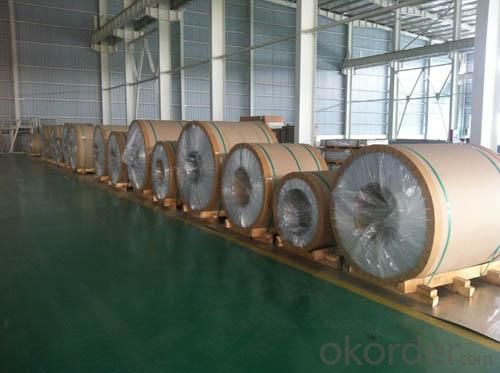
aluminum coil 1050 1060 1070 1100 1235 | | |||
Alloy | Thickness(mm) | Width(mm) | Temper | DC or CC |
0.2-4.0 | 20-1500 | O,H12,H22,H14,H24,H16,H26,H18 | DC, CC | |
4.0-12.0 | 1000-1900 | H111,H112 | DC | |
ID | 505mm,75mm,150mm etc. | |||
Packing | eye to wall | | ||
eye to sky | | |||
Application | Mainly in printing(PS plate base), Aluminum-plastic composite panel base, construction, decoration, capacitor, cover material, deep drawing products, refrigeration, air conditioner, automobile etc. | |||
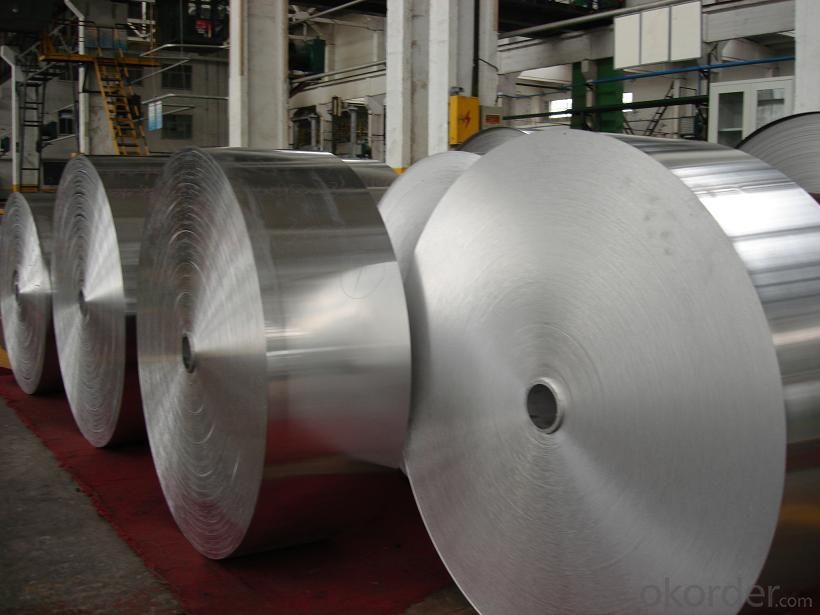
6000 series aluminium alloy plate, generally called Al-Mg-Si alloy, the magnesium and silicon are used as main alloy element. Feature: most the advantages of 4000 series & 5000 series alloy, good corrosion resistant performance, well welding property, good oxidability, easy to spray-finishing,well oxidation coloring, good machinability, middle strength, often used used after heat treatments.
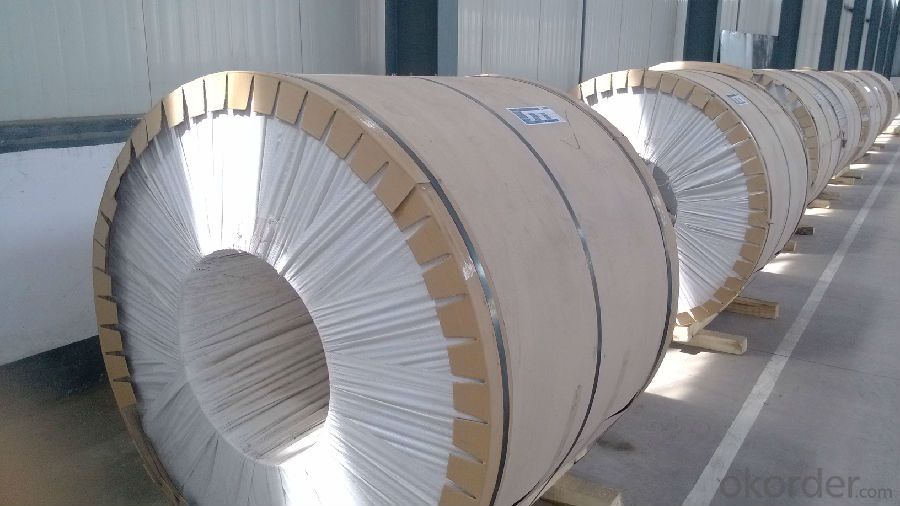
- Q: What are the environmental regulations concerning the use of aluminum coils?
- <p>Yes, there are environmental regulations that govern the use of aluminum coils. These regulations vary by country and region but often include restrictions on emissions, waste disposal, and recycling requirements. For instance, in the United States, the Environmental Protection Agency (EPA) enforces rules that control the release of pollutants from aluminum production facilities. Additionally, there are guidelines for the proper disposal of aluminum waste to prevent environmental contamination. Recycling regulations also encourage the reuse of aluminum coils to reduce the environmental impact of mining and production. Compliance with these regulations is crucial for businesses that manufacture or use aluminum coils to avoid penalties and ensure sustainable practices.</p>
- Q: Which is better composite or aluminum, and what are some main differences between the two?
- composites are so much better. the ball will travel way farther and your hands wont sting if you hit the ball on the handle. they are much better trust me
- Q: Are aluminum coils suitable for insulation jacketing?
- Indeed, insulation jacketing can be effectively achieved with aluminum coils. Renowned for their exceptional thermal properties, durability, and resistance to corrosion, aluminum coils are a highly favored choice for jacketing material. They find extensive application across diverse industries such as HVAC, oil and gas, and petrochemical, where they serve to insulate pipe systems and equipment. By enveloping insulation materials, aluminum coils play a crucial role in safeguarding against moisture infiltration and sustaining thermal efficiency. Moreover, their lightweight composition ensures effortless installation and transportation. Ultimately, aluminum coils emerge as a dependable and efficient solution for insulation jacketing endeavors.
- Q: What are the necessary safety measures to take when handling aluminum oxide coated aluminum coils?
- <p>When working with aluminum oxide coating on aluminum coils, it's crucial to follow safety precautions. Always wear appropriate personal protective equipment (PPE), including gloves, safety glasses, and a dust mask to prevent inhalation of dust particles. Ensure proper ventilation to avoid dust accumulation. Handle the material carefully to prevent any skin contact with the coating. Keep the area clean and free from any flammable materials to avoid fire hazards. Be aware of the specific health risks associated with aluminum oxide exposure, and follow the manufacturer's guidelines for safe handling. Regularly inspect equipment for any signs of wear or damage that could lead to accidents.</p>
- Q: Are there any limitations to using aluminum coils?
- Yes, there are certain limitations to using aluminum coils. One limitation is that aluminum has a lower tensile strength compared to other metals like steel, making it more prone to damage or deformation under heavy loads or impacts. Additionally, aluminum coils can be susceptible to corrosion if not properly protected or coated. Finally, aluminum coils may not be suitable for applications that require high electrical conductivity, as aluminum has a lower conductivity compared to copper.
- Q: What is the primary substance that constitutes an aluminum coil?
- <p>The material of aluminum coil is aluminum, a lightweight, corrosion-resistant, and malleable metal. It is commonly used in various industries due to its excellent electrical conductivity, thermal conductivity, and formability. Aluminum coils are made by rolling aluminum sheets into cylindrical shapes, which can be further processed into different products such as cans, foils, and other applications.</p>
- Q: Are aluminum coils suitable for reflective insulation?
- Indeed, reflective insulation can indeed benefit from the use of aluminum coils. With its high reflectivity and low emissivity, aluminum proves to be an excellent material for deflecting radiant heat. By effectively reflecting radiant energy away from the insulated area, aluminum contributes significantly to reducing heat transfer. Unsurprisingly, aluminum coils find widespread application in various reflective insulation solutions, including foil-faced insulation boards and radiant barriers.
- Q: How do aluminum coils contribute to thermal insulation?
- Thermal insulation is enhanced by aluminum coils in multiple ways. Firstly, aluminum possesses a remarkable reflective property, enabling it to deflect heat and radiation away from the surface. This characteristic effectively reduces the amount of heat absorbed by the coil and transmitted to the surroundings. Additionally, aluminum coils are frequently employed in conjunction with insulation materials like foam or fiberglass. These insulating materials create air pockets that serve as a barrier against heat transfer. The aluminum coil acts as a safeguard, shielding the insulation material from any potential harm or compromise. Moreover, aluminum is a lightweight material that exhibits exceptional resistance to corrosion. This feature allows for the versatile use of aluminum coils in various applications, including HVAC systems, where they contribute to maintaining a consistent temperature by minimizing heat loss or gain. In summary, aluminum coils assume a critical role in thermal insulation by deflecting heat, safeguarding insulation materials, and imparting durability and longevity to the insulation system.
- Q: What exactly happens in the reaction involving powdered aluminum and crushed iodine? I know that adding a few drops of water produces a lot of purple smoke and that it will flare up but what is the chemistry involved? And also, I know that the white residual left in the cup is Al2I6 but why is it acidic when water is added to it? It has a pH of between 1 and 2. What is the smoke that is produced and what causes the exothermic reaction?
- iodine is an oxidizer, a good taker of electrons Aluminum is a great loser of electrons you have a redox reaction happening where Al loses electrons to become Al+3 , and Iodine takes electrons to become I-1 iodide since the reaction is forming the most stable material Al2I6, the reaction must be exothermic, when products are more stable than reactants,... the excess energy must be released. it is the release of this heat that evaporates some of the iodine crystals into the purple iodine vapor Al2I6 does a hydrolysis reaction with water: Al2I6 in water -- Al(OH)3 3 HI the byproduct Al(OH)3 is stable not soluble (a very weak base) but the byproduct HI is a very strong acid what is the smoke? upon adding water? could be steam, the purple smoke was iodine vapor
- Q: Are aluminum coils resistant to vibration?
- Aluminum coils, typically, exhibit resistance to vibrations. Being lightweight and flexible, aluminum possesses the capability to absorb vibrations and alleviate their effects. Moreover, aluminum coils find extensive usage in crucial areas where vibration resistance holds significance, such as HVAC systems, automotive components, and electrical transformers. The commendable strength-to-weight ratio of aluminum further contributes to its capacity to endure vibrations without distortion or fracturing. Nevertheless, the precise degree of vibration resistance could vary depending on the distinctive design and construction of the aluminum coil.
Send your message to us
026 Aluminum Coil - 6083 T5 Aluminum Alloy Plate/Coil from China
- Loading Port:
- Shanghai
- Payment Terms:
- TT OR LC
- Min Order Qty:
- 5 m.t.
- Supply Capability:
- 90000 m.t./month
OKorder Service Pledge
OKorder Financial Service
Similar products
Hot products
Hot Searches
Related keywords
